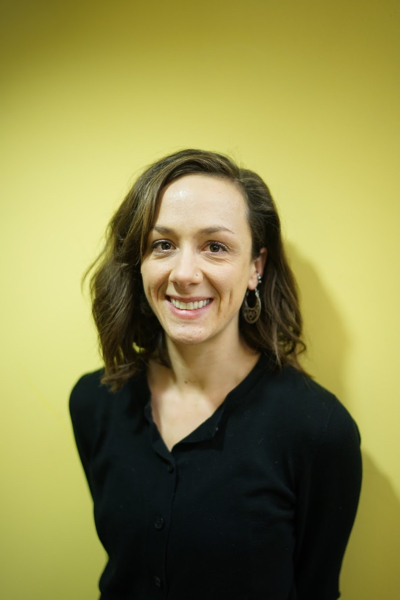Campus News
Grad student working to advance Beyond Compliance initiative
Across the world, graduate student Alison Hanson has focused on preventing and responding to sexual violence. She’s now bringing her expertise to UC Santa Cruz, where she’s part of the campus Beyond Compliance initiative.

It’s not surprising that Alison Hanson is the graduate student researcher for UC Santa Cruz’s Beyond Compliance initiative, which seeks to eliminate sexual harassment and sexual violence from campus.
The anthropology doctoral student has worked on this issue for years both in and out of the country.
“It’s work I feel personally and intimately invested in,” Hanson said. “Sexual violence can affect a lot of us in many ways. From personal experiences, it’s something that’s always been there, something I’m concerned about.”
While enrolled in graduate school at the University of Colorado at Boulder, where she eventually earned a master’s degree in anthropology and certificate in women’s and gender studies, she conducted research in India about feminist legal advocacy against sexual violence. During three summers between 2015 and 2017, she interviewed women’s organizations, student activist and lawyers, covering such topics as changes to the country’s rape law, protests around curfews for women at Delhi University and the operations of women’s crisis centers.
Here in Santa Cruz, where she arrived in 2016, she competed a 65-hour sexual assault advocacy training course. She also conducted ethnographic field research on the UC campus and community responses to sexual violence and Title IX, a federal law prohibiting sex discrimination, including sexual violence and harassment, at any educational organization that receives federal funding.
She now serves as UC Santa Cruz’s graduate student representative on the UC systemwide Title IX Student Advisory Board. The board strives to make sure student voices are heard and that UC handles sexual harassment and sexual assault claims in a transparent and compassionate matter.
“I am really committed to ensuring graduate student perspectives and experiences are foregrounded,” she said. “Often when the university talks about ‘students,’ undergraduates are the default. Yet graduate students have to navigate multiple and complex positionalities—as students/advisees, peers, employees, teachers—that can make our vulnerabilities to and means of addressing sexual violence and sexual harassment quite different.”
Hanson pointed out that graduate students work closely with a few faculty members who are critical to helping them make connections and get jobs. “They could have a say on whether you work in the field in the future,” she said.
Hanson has given talks about Title IX policies and campus resources and hosts office hours from 12–2 p.m. Tuesdays at the Graduate Student Commons, where students can ask questions and offer suggestions about how better to enforce Title IX.
As part of her work as graduate student researcher for Beyond Compliance, Hanson is developing an education and prevention program for faculty that will include student victim experiences. She wants to give faculty members tools about how to compassionately assist students who may share their experience and how to intervene when they see a colleague engaging in troubling behavior such as flirting with a student.
“Beyond Compliance really situates faculty as responsible for initiating and sustaining this conversation,” she said.
Hanson believes that the recent high-profile sexual harassment cases at UC Santa Cruz demonstrate the need for faculty to intervene in their colleagues’ bad behavior rather than close ranks. “There are serious fears about retaliation that inhibit students—and grad students in particular—from reporting,” she said.
To make Beyond Compliance a reality, the university will have to address several policy gaps, including a more robust anti-retaliation clause, she said.
Other needed changes include making sure harassment investigations are completed in the allotted time frame and increasing transparency so faculty and students know what is being done to address sexual violence, Hanson said.
Hanson said she wouldn’t work on Beyond Compliance if she didn’t think it would help the university climate.
“Calling for a cultural change or cultural shift is a big thing and it’s a slow process but I think there can be real short-term and long-term changes,” she said. “The actual work Beyond Compliance is doing can have a real impact.”